|
If everyone would barricade (cover) their coughs and sneezes properly, there would be less illness. How do you cover a sneeze? 1) Don't cover your sneeze. BAD. Germs can shoot out up to 10 ft. 2) Sneeze into your hands. NOT AS BAD. After sneezing into your hands you will then contaminate everything you touch until you thoroughly wash your hands. 3) Sneeze into your sleeve. BETTER, but it doesn't cover your sneeze very well. 4) Sneeze into a tissue. BEST. It will cover your sneeze pretty well and you can then simply dispose of the tissue.
0 Comments
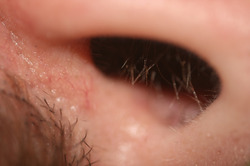 quoted from an article by Sarah Rohoman in Yahoo Canada StyleNovember 23, 2016 Did you know that plucking or trimming NOSE HAIR can be dangerous. "There’s an area on your face that the medical community has ominously named “the triangle of death.” The top point of the triangle is the bridge of your nose with the bottom of the triangle being above your upper lip. This area of your face is obviously close to your brain which makes getting infections in the triangle more dangerous than getting a cut on your knee. Not only is tweezing nose hairs incredible painful, it can leave the skin open from where you yanked the hair out. The hair in our nose is the first line of defense for filtering out the bad things we breathe in, so there’s plenty of germs trapped in there. The germs can then enter the body from the wound and cause an infection – staph, meningitis, etc. These scary bacteria can then infect the brain, leading to serious medical outcomes like paralysis or even death." The bottom line is DON'T PLUCK IN THE TRIANGLE. And don't pop pimples or pick your nose as either could leave your skin open to infection in vessels the feed the brain. Not a good situation. Monofoil
I was contacted by the makers Coeus Technology, makers of Monofoil. I am very impressed with the product, so I asked if I could post about it because, unlike most germ killing sprays or wipes which kill the "current" germs, Monofoil continues to kill germs on the surface for a long time after being applied.
Monofoil is a revolutionary new antimicrobial product that uses a physical action as opposed to a chemical action in destroying microbes. This antimicrobial product is being used by area hospitals, schools, professional sports organizations, and theme parks. Countries like China, Saudi Arabia, and Australia have recently been introduced to this new technology. Monofoil destroys algae, fungi, bacteria, and viruses by attracting the harmful microbes to it. Then the cell membrane is pierced, bled out and then electrocuted. The technology of Monofoil enables the product to remain intact to the substrate it is applied to. Allowing it to stay in place for up to 30 days as continues to work time and time again. This ready-to-use product is available in gallons, spray bottles, and wipes. Coeus Technology has recently added to its product line a new laundry additive. Thus allowing the clothes we wear to be protected for up to 50 washes. Better yet, Monofoil is hypo-allergenic, non-toxic, and safe to use around children and pets. One of the benefits of using Monofoil is the cost effectiveness of the product. It is fairly priced when you consider how long it lasts you. No more need for us germaphobes to buy chemicals that can be harmful to humans and have no longevity anyway. Another benefit is in the way the antimicrobial works. The way it kills a microbe is unique in that it does not simply poison the cell, but destroys it. Most chemicals will poison or sicken the microbe, allowing it to adapt to the chemical. This is how a “superbug” is formed and is definitely life threatening. Not the case with Monofoil. This product completely eliminates the problem and sticks around to do it again. Monofoil is unconditionally registered with the EPA and is made in the USA. Coeus Technology is a Disabled Veteran Owned Small Business located in central Indiana. The partners who started the company are both from Indiana and have studied biology at Indiana University. Both also served in the military for their country. I am neither sponsoring nor endorsing their product. It just looks like a "game changer" to me. Related articles 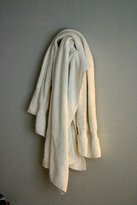 I would have never thought of this but here is the question and answer that I found at answers.yahoo.com Q. If I swung a towel that might be dirty in circles as fast as I could, would the germs be pushed away by the centrifugal force and make it "cleaner"? A. Theoretically, yes. But even with all your force, you will be able to spin the towel with a maximum speed. That speed won't be sufficient to detach the germs from the towel. What happens is the germs have a maximum force capability by which they are stuck on the towel. The centrifugal force that you create isn't enough. It works on water though. Try swinging a wet towel and you will understand what I am saying. However, what you can do is to give the towel a jerk. That jerk gives a large acceleration to the towel which is larger than the germ's holding capacity and it will remove some (not all) the germs. Related articles I found this great article written by Angela Epstein in Mail Online on Dec 7, 2010 The experts’ rules for beating household bugs that can trigger heart disease, allergies and strokes Most of us never give a second thought to how long we’ve had that old chopping board – or those pillows, even that hairbrush. But while they may all look clean and serviceable enough, these seemingly innocent household items can actually harbour potentially harmful bacteria if used too long, regardless of how often they’re cleaned. Here, with the help of scientific experts, we examine how often you should spring clean those everyday household items – and when it’s time to simply throw them in the bin . . . 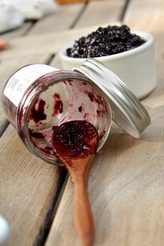 WOODEN SPOONS Wood is more porous than plastic or metal, making it more susceptible to carrying germs and bacteria, explains John Oxford, Professor of Virology at Barts and the London Hospital. The bacteria particularly prevalent in the kitchen is E. coli, usually from raw meat or children with poor hygiene habits. This can lead to severe food poisoning. Beware: Seemingly innocent household items can harbour harmful bacteria Don’t put wooden spoons in the dishwasher, especially not on a regular basis, as they may crack and therefore provide a haven for bacteria. Instead, soak in disinfectant for about half an hour and then wash with boiling soapy water. REPLACE: After five years, but earlier if the wood cracks, or if any part becomes soft or dark, as this could mean the wood is rotting and retaining bacteria. 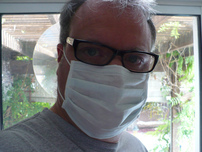 Source: article from By Ruby Hawk on July 8th, 2010 published at http://bit.ly/b743AS Germ consciousness has been hammered so deeply in the American psyche that much money has been made from this perception. In 1908, a Swiss chemist invented a flexible cellulose film that was acquired by the Du Pont Company. They named it cellophane. To the public this meant germ protection. Cellophane ads warned of the dangers of, flies, fingers, and germy food. These ads soon appeared in the Saturday Evening Post, Ladies Home Journal, and Good Housekeeping. The Cellophane Radio Show featuring the etiquette expert Emily Post, aired in the morning just before housewives went shopping, and guess who filled their carts with cellophane. In the 1920s Listerine made it’s appearance, named after John Lister who introduced antisepsis into surgery. Their ad featured a young woman whose hopes for a happy marriage was ruined because of halitosis, which the ad represented as a terrible condition caused by bacteria in the mouth. Listerine could help one avoid being, “always the bridesmaid and never a bride” Listerine was also recommended as a handwash to kill 17 germs carried by the hands. One ad warned mothers that they would hesitate to bathe or feed their babies if they could see the germs on their hands under a microscope. The company, of course advised washing the hands in Listerine. Sales went from $100,000 in 1920 to $4 million just seven years later. Germ consciousness also paved the way for all the paper products made today. In 1935, paper cup manufactures warned of the dangers of unsterile drinking glasses and china which could be avoided by using paper cups and plates. Today a growing number of researchers are saying that our increasing separation from dirt and microbes carries a serious price to pay, and may be killing us. They call it the hygiene hypothesis. The idea is that too much cleanliness is bad, and we need germs. Throughout human life we have lived with dirt and microbes since the moment we were born. Our immune system evolved pathways to protect us. If these pathways are removed (as they are being removed today with all this cleanliness) our whole immune system will backfire. Scientists give as an example, if a child grows up without love and affection, it’s brain cells fail to make the right connections and the infant grows up mentally impaired. In the same way, our immune system will fail to develop properly, if it isn’t given the challenges it requires from birth. Scientists have noticed that in large families children have a lower rate of illness. They think it could be because older siblings bring more germs into the household and because of that fact, children develop a better immune system. It used to be that if one child had measles, neighbors children were brought in and exposed to it. When one child had a contagious disease they could be sure of plenty of company. Now we keep our children away from contagious disease. A reversal of what out parents did. Related articles 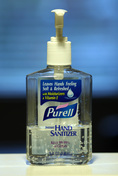 Ever notice that there are more commercials advertising antibacterial gels and related products? Every time I step into a grocery store there are antibacterial wipes for my shopping cart readily available. Or how about when you are waiting in line at the checkout stand? Chances are there’s a bin full of antibacterial products nearby. At the place where I work, there’s a Purel dispenser at every door entrance. Is it excessive? No. I’ll be the first to admit that I’m a germaphobe. And if something as simple as a modified strain of flu can take several lives, that’s enough proof to me that we need to have these products available to us at all times. Here are some key locations to keep antibacterial products handy. In your pocket! Think about all the things you touch and share with other people during the week. At work you come into contact with a number of co-workers and customers. You probably share the majority of office supplies and equipment, including computers, photocopiers, staplers, pens, with the entire company. On your days off you’re probably out doing chores. You’re touching door handles, shopping cart handles, toilet handles sink faucets in public restrooms, ATMs, meat at grocery stores. If you want to prevent yourself from contracting an infectious microbe, one rule of thumb to follow is that you sanitize after you leave each place you visit. You can do this by carrying around a small bottle of antibacterial gel that you can fit in your pocket or purse. At your kitchen sink. If you do a lot of cooking at home, you want to disinfect your hands before you touch the food which you are about to serve yourself and others. That’s health 101. But here’s something else to think about. Imagine all the dirty dishes that you put into your sink. So, you have germs from both people’s mouths and from food particles that become exposed and start to rot over time. Now, think about the sponge that you touch every time you wash the dishes. Chances are you don’t swap out your sponges everyday. Microbes can live for days on moist surfaces, which your sponge most definitely is the majority of times. Make it a habit to rub your hands with some antibacterial gel after you wash your dishes, and you will greatly reduce your exposure to infectious germs. At or near your dining room table. Our mouth being our largest orifice, it is the easiest path for dangerous microbes to take to get into our bodies. There is a reason why our parents pestered us about washing our hands before we ate, they didn’t want you to swallow down these microbes with your food! And if you’re a parent, you probably pester your own kids about washing their hands before they eat. But as you know, kids will seldom oblige to this request the first time. You probably have to tell them multiple times, or physically force them before they do it. Or they’ll simply lie about it. Sometimes you may even forget to tell your kids. Moreover, you as an adult, will sometimes fail to wash your hands before you eat. By having an antibacterial gel dispenser at your table, you will ensure that you and your family will have clean hands right before you serve the food, in case someone forgets or you suspect is lying about it. Related articles
|
Not Medical Advice
Everything in this blog is for entertainment and information only. It is NOT medical advice. Do not consider anything as medical advice and check with your physician before you take any action from any of our posts.
Categories
All
Archives
March 2020
AuthorI'm not in medicine. I'm just a mild germaphobe sharing information that I find. Interesting Sites |
 RSS Feed
RSS Feed
